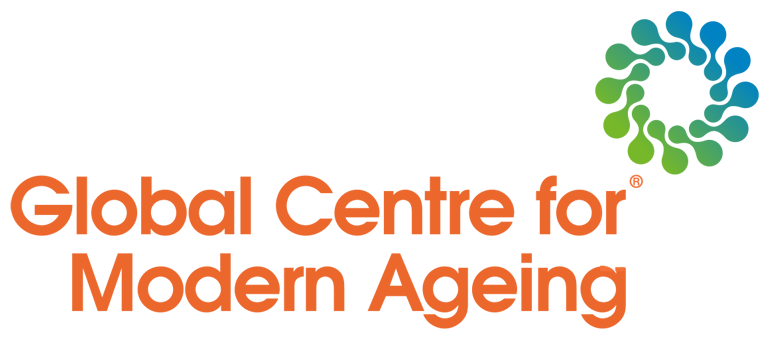AgeTech, un-retirement and a fifth birthday: GCMA’s CEO reflects on what ageing well means
The following article by GCMA CEO Julianne Parkinson was originally published on 04 October 2023 by Inside Ageing
Following the International Day for Older Persons on Sunday 1 October, it’s an opportune moment to reflect on the changing landscape of global demographics and celebrate the fifth birthday of the Global Centre for Modern Ageing® (GCMA). This milestone not only signifies our commitment to fostering innovative solutions for the challenges of Modern Ageing® but also aligns with the global recognition of the importance of our ageing population.
The International Day for Older Persons serves as a reminder that the world’s older population is growing at an unprecedented rate. In just over four decades, the number of individuals aged 65 or older has tripled, reaching 771 million globally in 2022. This demographic is expected to continue growing, with forecasts indicating it will make up nearly one-quarter (22%) of the population by 2057.
This demographic shift brings both opportunities and challenges. Longer life expectancies provide chances for older individuals to explore new passions, careers, and educational pursuits, while also placing significant emphasis on promoting health, preventing illnesses, and maintaining functional and financial independence throughout life.
At the GCMA, we understand the importance of addressing these challenges and harnessing the immense opportunities that Modern Ageing presents. Our mission revolves around developing and collaborating with a global network of industry-leading organisations and change-makers to advance the Ageing Well industry.
One of our key initiatives is our inclusive co-design program, wherein older individuals, their families, and various stakeholders work together to identify unmet needs and create scalable solutions tailored to the needs of older adults. By prioritising co-creation and user-centric design, we ensure that our solutions are genuinely fit for use by older adults, promoting independence and well-being.
Over our five years of operation, we’ve partnered with Australian and international organisations to deliver impactful projects, and put exciting innovations in the hands – and homes – of older Australians.
In collaboration with the Hong Kong Council of Social Service, we’ve addressed the demand and supply components that enable older people to live independently at home in Hong Kong. We’ve also played a pivotal role in planning and developing innovative ‘Age Friendly’ precincts that prioritise quality of life and nurture intergenerational connections.
Furthermore, our work with Aboriginal and Torres Strait Islanders and CALD communities has led to the design of culturally inclusive, user-friendly digital products that respond to the diversity of Australia’s older population. Additionally, our partnerships with technology providers like Google Chrome Enterprise and Aurrigo have helped us understand how technology-enabled solutions, such as digital health monitoring and autonomous vehicles, can enhance the lives of older adults.
One of the most promising areas we’ve explored is AgeTech, which encompasses various ways technology can support the evolving needs and preferences of older adults. With a global older adult population expected to reach one in six people by 2050, the AgeTech market is booming, set to exceed USD 336.2 billion by 2027. In Australia alone, it’s projected to be worth AUD 5 billion by 2030.
The primary motivation behind older adults adopting AgeTech products is to maintain their independence. Popular tools include smartphones, laptops, and tablets, which help address isolation and enhance communication. An encouraging 83% of Australian older adults using AgeTech products have found them helpful.
AgeTech is not just a technological or economic phenomenon; it’s a profoundly human one. It redefines ageing as an experience marked by independence, safety, and rich connectivity, all thanks to the power of technology. However, we must also address cybersecurity and privacy concerns to ensure that these solutions truly benefit older adults.
In light of the increasing trend of “unretirement,” it’s crucial to foster an inclusive workplace that values older workers’ skills and experience. Age biases must be addressed, and opportunities for lifelong learning, especially in digital skills, should be accessible to older employees. Mutual mentoring and workplace flexibility can mitigate age-related biases and enhance collaboration.
Accessing funds and financial planning are also critical aspects of Modern Ageing. With nearly 70% of Australians over the Age Pension age reliant on government pensions or income support, financial security plays a pivotal role in retirement decisions. Strategic financial planning, diversifying income sources, and preparing for future retirement needs and preferences are essential steps in ensuring financial stability during retirement.
As we celebrate International Day for Older Persons and five years of the GCMA, we remain committed to reshaping the ageing narrative. Together with our Australian and global partners and with the support of innovative technologies, we continue to advocate that growing older can be a time of independence, safety, and rich connectivity while contributing to our communities and economies. Age is not a barrier; it’s a celebration of life’s continued journey.

